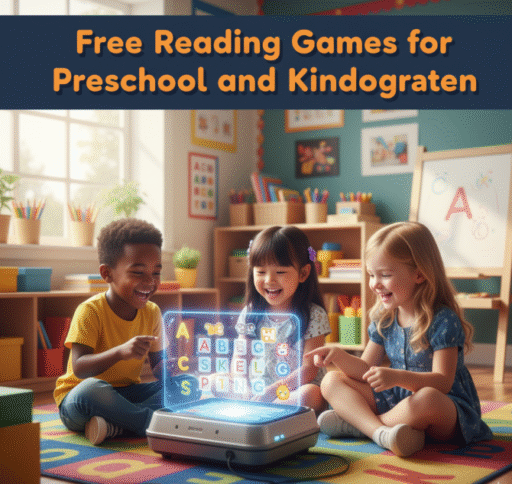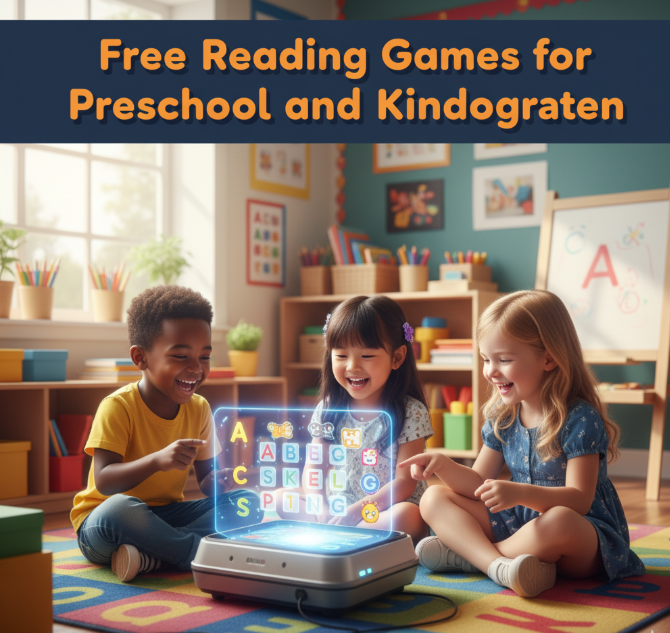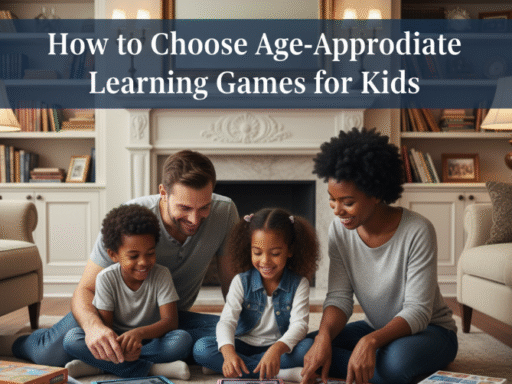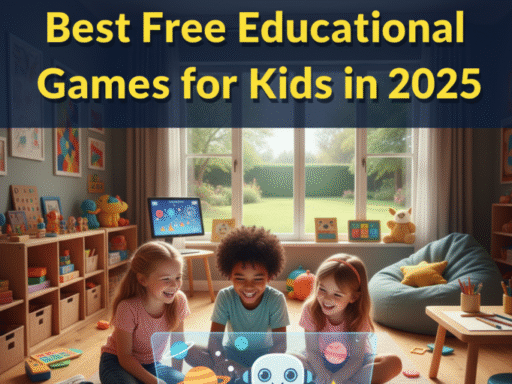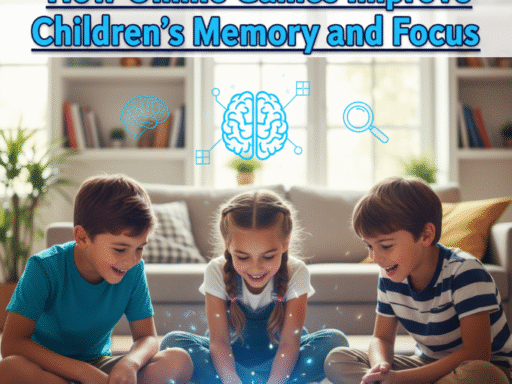Introduction
In today’s fast-paced digital world, children are often glued to screens—whether it’s for online classes, video games, or social media. While technology has its advantages, parents often struggle to find balance between screen time and meaningful family interaction. That’s where educational board games come in.
Board games are more than just fun family activities. They help children develop critical thinking, teamwork, communication skills, problem-solving abilities, and even academic knowledge. From math and science to history and language learning, educational board games turn playtime into a powerful learning experience.
In this guide, we’ll explore some of the best educational board games parents should try at home, along with tips on how to make family game nights exciting, interactive, and educational.
Why Educational Board Games Are Valuable at Home
Before we dive into the list, let’s quickly look at why educational board games should be part of every family’s routine:
-
Boost Brain Development – Enhance memory, logic, and strategic thinking.
-
Encourage Social Skills – Kids learn patience, cooperation, and teamwork.
-
Improve Academic Skills – Games often cover subjects like math, vocabulary, and geography.
-
Reduce Screen Time – A fun way to keep kids engaged without technology.
-
Build Family Bonds – Quality time together helps strengthen family connections.
Types of Educational Board Games Parents Can Choose
Parents often wonder which board games are most effective. To make it easier, here’s a breakdown of popular categories of educational board games:
| Category | Skills Developed | Examples |
|---|---|---|
| Math & Numbers | Counting, arithmetic, probability | Sum Swamp, Prime Climb |
| Vocabulary & Language | Spelling, word formation, communication | Scrabble, Boggle |
| Science & Logic | Experimentation, reasoning, deduction | Gravity Maze, Cytosis |
| History & Geography | Knowledge of world, culture, places | Ticket to Ride, Timeline |
| Strategy & Critical Thinking | Problem-solving, planning, foresight | Chess, Settlers of Catan |
Best Educational Board Games Parents Should Try at Home
Now, let’s explore some of the top educational board games that are both entertaining and enriching.
1. Scrabble
Best for: Vocabulary, spelling, and word-building
Scrabble has been around for decades, and it remains one of the most powerful word games. Children learn how to form words using letter tiles, which improves their spelling, vocabulary, and even math skills (since each letter has points).
Why parents should try it at home:
-
Helps with language development.
-
Suitable for both children and adults.
-
Encourages creative thinking.
2. Chess
Best for: Strategy, logic, and focus
Chess is often called the “game of kings,” and for good reason. It trains the brain to think several steps ahead.
Benefits of chess at home:
-
Improves concentration and patience.
-
Teaches children the value of planning.
-
Enhances memory and critical thinking.
💡 Tip: If your child is new, start with simplified chess versions for beginners before moving to full rules.
3. Sum Swamp
Best for: Early math skills
For younger children, Sum Swamp is an excellent way to practice addition and subtraction while having fun. The board is colorful, and the dice-based gameplay keeps kids engaged.
Skills learned:
-
Basic arithmetic.
-
Counting and number recognition.
-
Taking turns and following rules.
4. Ticket to Ride
Best for: Geography and planning
In this game, players build train routes across countries. Kids learn about different cities, countries, and geography while developing problem-solving and planning skills.
Why it’s great for families:
-
Teaches geography in a fun way.
-
Promotes strategic planning.
-
Suitable for older kids (ages 8+).
5. Boggle
Best for: Quick thinking and vocabulary
Boggle is a fast-paced word game where players try to find as many words as possible from a grid of letters. It’s an exciting way to expand vocabulary and improve spelling.
Highlights:
-
Builds quick-thinking skills.
-
Encourages competition in a healthy way.
-
Perfect for short, fun sessions.
6. Prime Climb
Best for: Math mastery
Prime Climb is a colorful game that makes prime numbers, multiplication, and division exciting. Instead of seeing math as boring, kids visualize numbers and strategies.
Benefits:
-
Boosts math confidence.
-
Strengthens number sense.
-
Encourages logical reasoning.
7. Brain Quest Smart Game
Best for: General knowledge and trivia
This game is built around school subjects like history, science, math, and English. Children answer age-appropriate trivia questions to advance, making learning fun.
Why parents love it:
-
Covers multiple academic areas.
-
Suitable for family trivia nights.
-
Enhances memory and recall.
8. Gravity Maze
Best for: STEM learning and problem-solving
Gravity Maze is a logic-based marble run game where players must build paths to guide marbles through a tower structure. It introduces children to engineering and design concepts.
Key benefits:
-
Develops spatial reasoning.
-
Encourages trial-and-error learning.
-
Suitable for solo play as well.
9. Timeline
Best for: History and memory
Timeline challenges players to arrange historical events in the correct order. It’s both educational and engaging for kids who enjoy learning about history.
Why it’s effective:
-
Improves historical knowledge.
-
Develops sequencing and memory.
-
Works well for group play.
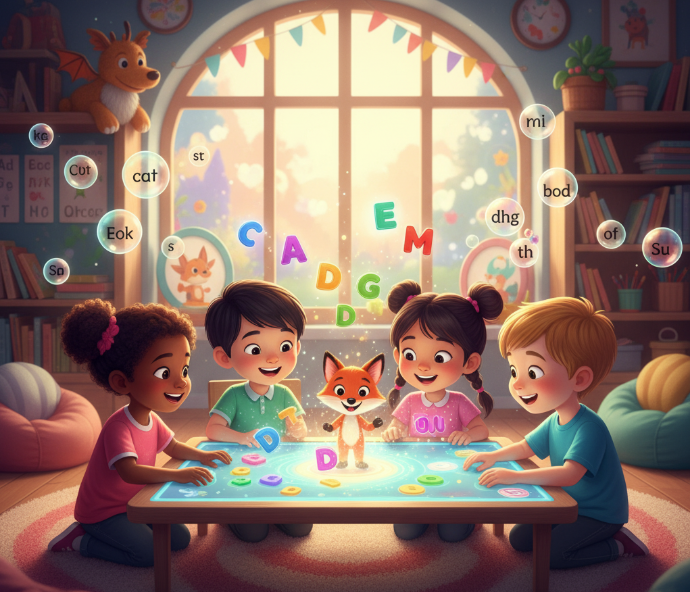
Free Reading Games for Preschool and Kindergarten
10. Catan (Settlers of Catan)
Best for: Economics and negotiation skills
Catan introduces children to resource management, trading, and decision-making. Players build settlements while learning about cooperation and competition.
Skills developed:
-
Strategic planning.
-
Resource allocation.
-
Negotiation and compromise.
How to Make Educational Board Games More Fun
Simply owning board games isn’t enough—parents need to create a fun learning environment. Here’s how:
-
Create a Game Night Routine – Choose one or two nights per week for family board games.
-
Mix Learning with Rewards – Offer small prizes (like extra screen time or a snack) to motivate kids.
-
Rotate Games Regularly – Prevent boredom by alternating between different board games.
-
Play in Teams – Pair up younger kids with parents to build confidence.
-
Encourage Discussion – After the game, talk about strategies, lessons learned, and fun moments.
Age-Wise Recommendations for Educational Board Games
| Age Group | Recommended Games |
|---|---|
| 4–6 years | Sum Swamp, Zingo, Candy Land (basic counting) |
| 7–9 years | Scrabble Junior, Prime Climb, Boggle |
| 10–12 years | Chess, Ticket to Ride, Gravity Maze |
| 13+ years | Catan, Timeline, Scrabble, Brain Quest |
Benefits of Playing Educational Board Games as a Family
Educational board games do more than just teach—they bring families together.
-
Stronger Relationships – Playing games creates shared memories.
-
Improved Communication – Kids learn to express ideas, listen, and negotiate.
-
Stress Relief – Games bring laughter and fun, reducing tension at home.
-
Healthy Competition – Children learn how to win gracefully and accept defeat.
-
Practical Learning – Instead of memorizing, kids apply knowledge in real-life scenarios.
Tips for Parents When Choosing Educational Board Games
-
Choose games based on your child’s age and interests.
-
Look for games that balance fun and learning.
-
Avoid overly complicated rules for younger kids.
-
Invest in durable, quality board games that last.
-
Don’t limit yourself—try both classic games and modern ones.
Quick Comparison of Top Picks
Here’s a summary chart to help you pick the best educational board games quickly:
| Game | Main Skill | Best Age | Playtime |
|---|---|---|---|
| Scrabble | Vocabulary & spelling | 8+ years | 45–60 mins |
| Chess | Strategy & logic | 7+ years | 30–90 mins |
| Sum Swamp | Math basics | 4–7 years | 20–30 mins |
| Ticket to Ride | Geography & planning | 8+ years | 30–60 mins |
| Prime Climb | Math mastery | 7+ years | 30–60 mins |
| Gravity Maze | STEM & problem-solving | 8+ years | 20–40 mins |
| Timeline | History & memory | 10+ years | 15–30 mins |
| Catan | Strategy & economics | 10+ years | 60–90 mins |
Conclusion
In a world dominated by smartphones, tablets, and streaming platforms, educational board games bring families back to meaningful, hands-on learning experiences. They help kids improve in school subjects, develop life skills, and build strong family bonds—all while having fun.
Whether your child struggles with math, wants to improve vocabulary, or loves history, there’s a board game that fits their needs. Start small with classics like Scrabble or Chess, then move to more engaging ones like Ticket to Ride or Catan.
So, clear the dining table, gather the family, and let the dice roll—because the best way to learn is when you’re having fun together.
